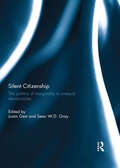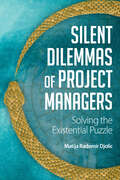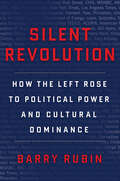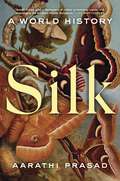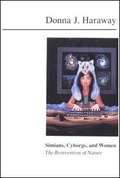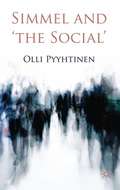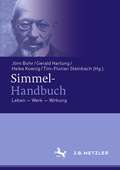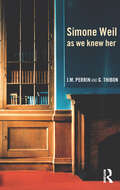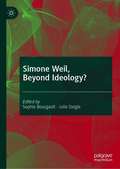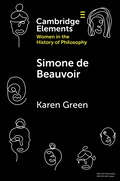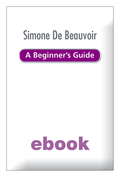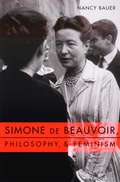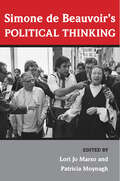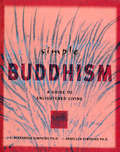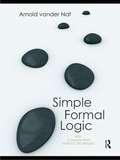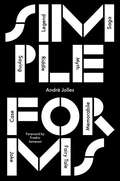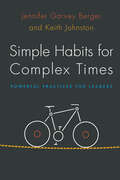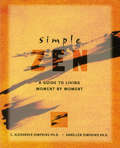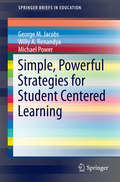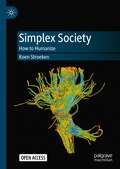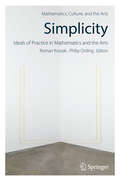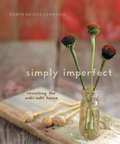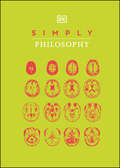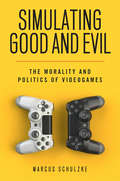- Table View
- List View
Silent Citizenship: The Politics of Marginality in Unequal Democracies
by Justin Gest and Sean W.D. GrayWhat does silent citizenship mean in a democracy? With levels of economic and political inequality on the rise across the developed democracies, citizens are becoming more disengaged from their neighbourhoods and communities, more distrustful of politicians and political parties, more sceptical of government goods and services, and less interested in voicing their frustrations in public or at the ballot box. The result is a growing number of silent citizens who seem disconnected from democratic politics – who are unaware of political issues, lack knowledge about public affairs, do not debate, deliberate, or take action, and most fundamentally, do not vote. Yet, although silent citizenship can and does indicate deficits of democracy, research suggests that these deficits are not the only reason citizens may have for remaining silent in democratic life. Silence may also reflect an active and engaged response to politics under highly unequal conditions. What is missing is a full accounting of the problems and possibilities for democracy that silent citizenship represents. Bringing together leading scholars in political science and democratic theory, this book provides a valuable exploration of the changing nature and form of silent citizenship in developed democracies today. This title was previously published as a special issue of Citizenship Studies.
Silent Dilemmas of Project Managers: Solving the Existential Puzzle
by Matija Radomir DjolicA fastidious investigation into the nature of self-identity, Silent Dilemmas of Project Managers uses the context of project management to challenge the perceived separation of objective experience from subjective perception. Positioning self-identity as the basis of one’s ongoing being-in-the-world, Djolic explores the relationship between our inner dialogues and the surrounding world, highlighting the problematic role our adopted self-notions play in producing negative experiences. In doing so, we are presented with a compelling case for viewing the subject’s self as the object of existential anxiety, as well as a framework for more comprehensive, existential therapy within business settings.
Silent Revolution: How the Left Rose to Political Power and Cultural Dominance
by Barry RubinA respected historian and political scientist charts the unchecked rise to power of radical leftism.Over the past fifty years, a silent revolution has allowed the radical left to seize power to an extent unthinkable only a decade ago. Stranger still, no one has noticed.Throughout the twentieth century, leftists worked tirelessly toward their goal of a proletarian revolution. But they continually fell short. American workers rejected socialism in the 1920s and declined to join the international communist movement in the 1930s. The New Left flowered briefly in the 1960s but petered out with the end of the Vietnam War. When the Soviet Union finally collapsed in 1991, radical Marxism seemed to have been defeated and discredited for good.Not so fast, says the political scientist Barry Rubin in this sharply pointed history of the modern American left. Far from disappearing, the radical left has undergone an ideological revolution and has rebranded itself as liberalism. Rubin traces the roots of this new ideology to the ideas of domestic radicals like Saul Alinsky, cultural Marxists like Antonio Gramsci, and Third World revolutionary thinkers like Frantz Fanon. This new brand of leftism constitutes a Third Left that now dominates the liberal movement in the United States.The Third Left’s main ideological innovation is the abandonment of the working class as a revolutionary vehicle. Instead it targets the education system, and it has now trained several generations of Americans to think in leftist terms of fairness and social justice. Imbued with this new “common sense,” these young people have fanned out through the professions, the government, and the media, where they unhesitatingly advance the ideas and goals of the left: anticapitalism, a state-controlled medical system, the semi-nationalization of key industries, the redistribution of wealth, and a rejection of America’s leading role in the world. As a result, without any real debate or understanding, the citizens of the United States have elected the most radical left-wing government in the country’s history.Silent Revolution offers a brief, readable, and utterly devastating critique of the radicalism that masquerades as liberalism today.
Silk: A World History
by Aarathi PrasadA Next Big Idea Book Club Must-Read for April"Aarathi Prasad spins a masterpiece of a story, as luminous, supple, and surprising as the wondrous threads themselves." —Sy Montgomery, bestselling author of The Soul of an Octopus and Of Time and TurtlesThroughout history, across cultures and countries, silk has reigned as the undeniable queen of fabrics, yet its origins and evolution remain a mystery. In a gorgeous and sweeping narrative, Silk weaves together its intricate story and the indelible mark it has left on humanity.Some four thousand years ago, the cultivation of silkworms began, the practice spreading to the far reaches of civilization. With it came a growing obsession with unlocking silk’s secrets to understand how the strongest biological material ever known could be harnessed.Explorers and scientists, including groundbreaking women who pushed the boundaries of societal expectations, dedicated—even sacrificed—their lives to investigate the anatomy of silk-producing animals. They endured unbelievable hardships to discover and collect new specimens, leading them to the moths of China, Indonesia, and India; the spiders of Argentina, Paraguay, and Madagascar; and the mollusks of the Mediterranean.Rich with the complex connections between human and nonhuman worlds, Silk not only peers into the past but also reveals the fiber’s impact today, inspiring new technologies across the fashion, military, and medical fields, and shows its untapped potential to pioneer a more sustainable future.The culmination of author and biologist Aarathi Prasad’s own lifelong passion and grounded in years of research and writing, Silk is an intoxicating read that provides an essential illumination of nature’s most glamourous thread.
Simians, Cyborgs, and Women: The Reinvention of Nature
by Donna J. HarawayA collection of ten essays written mostly during the eighties. With a feminist perspective and the premise that nature is constructed, rather than discovered-- and that truth is made, not found-- Haraway provides an analysis of the popular and scientific struggles involved in the telling of evolutionary tales. The author is a historian of science at the U. of California, Santa Cruz.
Simmel and ‘the Social’
by Olli PyyhtinenThis book argues for the centrality of Georg Simmel's social theory to the relational and processual emphases that are often considered as much more recent developments in social theory. Situating Simmel's work in particular with respect to New Vitalism and Bruno Latour's work, the book shows that Simmel has still an enormous amount to contribute.
Simmel-Handbuch: Leben – Werk – Wirkung
by Gerald Hartung Jörn Bohr Heike Koenig Tim-Florian SteinbachDas vorliegende Handbuch bietet eine umfassende Darstellung von Leben, Werk und Wirkung Georg Simmels (1858–1918). Neben Simmels Herkunft aus den Zusammenhängen einer Völkerpsychologie und früher europäisch-ethnologischer Interessen geht es darum, nächst dem ungleich bekannteren Soziologen v. a. den Philosophen Simmel herauszustellen. Komplementär zu einer Darstellung des Lebens Simmels sowie der Wirkung seines Schaffens werden seine Werke nicht nur inhaltlich dargestellt, sondern auch ihre Kontexte einbezogen und behandelt. Der Versuch, Simmels Denken in seiner ganzen Breite und Vielfalt abzubilden, führt dazu, die in der Forschung klassische Einteilung in drei Phasen von Simmels Werk sowie die Ausdifferenzierung in einen eher philosophisch und eher soziologisch orientierten Denker zu Gunsten einer genaueren Gruppierung der Werkphasen aufzuweichen bzw. mitunter ganz aufzugeben. Ziel ist es, weitere thematische Differenzierungen zu ermöglichen und Kontinuitäten und Zäsuren des Simmelschen Denkens möglichst umfangreich nachzuzeichnen.
Simone Weil as we knew her
by Joseph-Marie Perrin Gustave ThibonSimone Weil (1909-1943) was a defining figure of the twentieth century; a philosopher, Christian (although never baptised), resistance fighter, Labour activist and teacher, described by Albert Camus as 'the only great spirit of our time'. In 1941 Weil was introduced to Father Joseph-Marie Perrin, a Dominican priest whose friendship became a key influence on her life. When Weil asked Perrin for work as a farm hand he sent her to Gustave Thibon, a farmer and Christian philosopher. Weil stayed with the Thibon family, working in the fields and writing the notebooks which became Gravity and Grace and other posthumous works.Perrin and Thibon met Weil at a time when her spiritual life and creative genius were at their height. During the short but deep period of their acquaintance with her, they came to know her as she actually was. First published in English in 1953, and now introduced by J.P. Little, this unique portrait depicts Weil through the eyes of her friends, not as a strange and unaccountable genius but as an ardent and human person in search of truth and knowledge.
Simone Weil, Beyond Ideology?
by Sophie Bourgault Julie DaigleIn the last decade, interest in the writings of French philosopher Simone Weil (1909-1943) has surged. Weil is admired for her militant syndicalism, her factory experience and participation in the French resistance, but it is above all the eclectic and rich character of her work that has increasingly attracted scholarly attention. Weil reflected on subjects as diverse as quantum physics, Greek tragedy, bankruptcy, colonialism, technology, education, and religious metaphysics, but perhaps most interesting is the way that her work seems to defy any clear ideological labelling: Marxist, anarchist, liberal, conservative and republican all seem to fall short in describing the complexity of Weil’s thinking. Adding to the interpretive difficulty is the fact that Weil often expressed biting criticisms of most things political. What this edited volume argues is that it is precisely Weil’s unclassifiable nature, combined with her sharp and sometimes ambivalent criticisms of politics, that make her work a most timely and fascinating object of study for contemporary political philosophy. It proposes a two-pronged approach to her thought: first, via a series of conversations set up between Weil and key authors in modern and contemporary political theory (e.g. Sandel, Rawls, Ahmed, Agamben, Orwell); and secondly, via a close study of Weil’s reflections on various ideologies. The goal of this book is not to position Simone Weil squarely within a single ideological tradition but rather to propose that her thought might allow us to critically engage with various ideologies in the history of political ideas.
Simone de Beauvoir (Elements on Women in the History of Philosophy)
by Karen GreenTracing her intellectual development from her university years, when she was trained in a Cartesian and neo-Kantian philosophical tradition, to her final decade, during which she was recognised as having inspired the emerging strands of late twentieth-century feminism, Beauvoir is shown to have been among the most influential philosophical voices of the mid twentieth century. Countering the recent trend to read her in isolation from Sartre, she is shown to have both adopted, adapted, and influenced his philosophy, most importantly through encouraging him to engage with Hegel and to consider our relations with others. The Second Sex is read in the light of her existentialist humanism and ultimately faulted for having succumbed too uncritically to the masculine myth that it is men who are solely responsible for society's intellectual and cultural history.
Simone de Beauvoir - A Beginner's Guide Ebook Epub (A\beginner's Guide Key Figures Ser.)
by Alison HollandSimone de Beauvoir was among the 20th century's most influential thinkers. She was a philosopher at the forefront of existentialism, a pioneering thinker on women and feminism in ""The Second Sex"", the writer of prize-winning fiction, an autobiographical writer and a committed political activist. Introducing her life and work in a straightforward, jargon-free way, this guide offers readings of her fiction, explores the many facets of her thought and assesses her contribution to the intellectual debate.
Simone de Beauvoir, Philosophy, and Feminism (Gender and Culture Series)
by Nancy BauerIn the introduction to The Second Sex, Simone de Beauvoir notes that "a man never begins by establishing himself as an individual of a certain sex: his being a man poses no problem." Nancy Bauer begins her book by asking: "Then what kind of a problem does being a woman pose?" Bauer's aim is to show that in answering this question The Second Sex dramatizes the extent to which being a woman poses a philosophical problem. This book is a call for philosophers as well as feminists to turn, or return to, The Second Sex. Bauer shows that Beauvoir's magnum opus, written a quarter-century before the development of contemporary feminist philosophy, constitutes a meditation on the relationship between women and philosophy that remains profoundly undervalued. She argues that the extraordinary effect The Second Sex has had on women's lives, then and now, can be traced to Beauvoir's discovery of a new way to philosophize—a way grounded in her identity as a woman. In offering a new interpretation of The Second Sex, Bauer shows how philosophy can be politically productive for women while remaining genuinely philosophical.
Simone de Beauvoir’s Political Thinking
by Mary Caputi Karen Shelby Lori Marso Emily Zakin Sonia Kruks Patricia MoynaghBy exploring the life and work of the influential feminist thinker Simone de Beauvoir, this book shows how each of us lives within political and social structures that we can--and must--play a part in transforming. It argues that Beauvoir’s careful examination of her own existence can also be understood as a dynamic method for political thinking. As the contributors illustrate, Beauvoir's political thinking proceeds from the bottom up, using examples from individual lives as the basis for understanding and transforming our collective existence. For example, she embraced her responsibility as a French citizen as making her complicit in the French war against Algeria. Here, she sees her role as an oppressor. In other contexts, she looks to the lives of individual women, including herself, to understand the dimensions of gender inequality. This volume’s six tightly connected essays home in on the individual’s relationship to community, and how one’s freedom interacts with the freedom of other people. Here, Beauvoir is read as neither a liberal nor a communitarian. The authors focus on her call for individuals to realize their freedom while remaining consistent with ethical obligations to the community. Beauvoir's account of her own life and the lives of others is interpreted as a method to understand individuals in relations to others, and as within structures of personal, material, and political oppression. Beauvoir's political thinking makes it clear that we cannot avoid political action. To do nothing in the face of oppression denies freedom to everyone, including oneself.
Simple Buddhism
by Annellen Simpkins C. Alexander SimpkinsExploring a new religion is no easy task. That's why the Simple series is so popular-these delightful books take readers by the hand and lead them into the basics of an Eastern faith without intimidation or confusion. Simple Buddhism, invites readers to discover this appealing religion and its peaceful doctrines, as well as: The history of Buddhism The themes of Buddhism (The Four Noble Truths, The Eightfold Path, Nirvana, and Nirvana, and more) How to apply Buddhism in your everyday life The ultimate thesis of Buddhism: to live in the moment, see things as they truly are, and recognize yourself as part of the whole.
Simple Formal Logic: With Common-Sense Symbolic Techniques
by Arnold Vander NatPerfect for students with no background in logic or philosophy, Simple Formal Logic provides a full system of logic adequate to handle everyday and philosophical reasoning. By keeping out artificial techniques that aren’t natural to our everyday thinking process, Simple Formal Logic trains students to think through formal logical arguments for themselves, ingraining in them the habits of sound reasoning. Simple Formal Logic features: a companion website with abundant exercise worksheets, study supplements (including flashcards for symbolizations and for deduction rules), and instructor’s manual two levels of exercises for beginning and more advanced students a glossary of terms, abbreviations and symbols. This book arose out of a popular course that the author has taught to all types of undergraduate students at Loyola University Chicago. He teaches formal logic without the artificial methods–methods that often seek to solve farfetched logical problems without any connection to everyday and philosophical argumentation. The result is a book that teaches easy and more intuitive ways of grappling with formal logic–and is intended as a rigorous yet easy-to-follow first course in logical thinking for philosophy majors and non-philosophy majors alike.
Simple Forms: Legend, Saga, Myth, Riddle, Saying, Case, Memorabile, Fairytale, Joke
by Fredric Jameson André Jolles Peter J. SchwartzA seminal text in literary theory available in English for the first timeLegend, saga, myth, riddle, saying, case, memorabile, fairy tale, joke: André Jolles understands each of these nine “simple forms” as the reflection in language of a distinct mode of human engagement with the world and thus as a basic structuring principle of literary narrative. Published in German in 1929 and long recognized as a classic of genre theory, Simple Forms is the first English translation of a significant precursor to structuralist and narratological approaches to literature. Like Vladimir Propp’s Morphology of the Folktale, with which it is often compared, Jolles’s work is not only foundational for the later development of genre theory but is of continuing relevance today. A major influence on literary genre studies since its publication, Simple Forms is finally available in English.
Simple Habits for Complex Times: Powerful Practices for Leaders
by Jennifer Garvey Berger Keith JohnstonWhen faced with complex challenges or uncertain outcomes, many leaders believe that if they are smart enough, work hard enough, or turn to the best management tools, they will be able to find the right answer, predict and plan for the future, and break down tasks to produce controllable outcomes. But, what are leaders to do when this isn't the case? In complex situations, prediction, control, and the right answer are illusions. Rather than offering one-size-fits-all tips and tricks in pursuit of these mirages, Simple Habits for Complex Times provides three integral practices that enable leaders to navigate the unknown. By taking multiple perspectives, asking different questions, and seeing more of their system, leaders can better understand themselves, their roles, and the world around them. They can become more nimble, respond with agility, and guide their organizations to thrive in an ever-shifting business landscape. The more leaders use these simple habits, the more they enhance their performance and solve increasingly common, sticky business issues with greater acumen. Whether in large or small organizations, in government or the private sector, in the U. S. or overseas, leaders will turn to this book as a companion that helps them grow into the best version of themselves.
Simple Life: Time, Relationships, Money, God
by Thom S. Rainer Art Rainerhe research and change methods that made Simple Church a multiawarded, #1 ministry best seller are now applied to everyday matters in Simple Life. Authors Thom S. Rainer and Art Rainer interviewed a cross-section of 1,077 individuals to confirm that most people feel their lives are overly stressful and misguided, not allowing enough time for what really counts. As they share these highly relatable stories, the Rainers chart a simple path from joyless to joyful.
Simple Zen: A Guide to Living Moment by Moment
by Annellen M. Simpkins Ph.D. C. Alexander SimpkinsSimple Zen is a comprehensive and accessible introduction to Zen's history, themes, and uses in our modern Western world. Beginning with a history of Zen from the time of its origin to the present, the book goes on to outline the themes and practices associated with Zen, such as koans, meditation, enlightenment, and ethics. The final section of the book, entitled "Living Zen," addresses the ways in which Zen can help us to realize a deeper, fuller life though such artistic activities as poetry, brush painting, the martial arts, tea ceremony, and flower arrangement.
Simple, Powerful Strategies for Student Centered Learning
by George Martin Jacobs Willy Ardian Renandya Michael PowerThis book reminds us teachers about all the little things we can do to be more student-centric. It shows teachers how to "walk the walk," and shows teacher educators how to guide colleagues along a student-centered path. The book examines why we should and how we can promote student-student interaction to enable students to learn more and enjoy the process. It also offers simple but effective strategies for enhancing student motivation, a factor that many experts consider to be the most important determinant of success in educational endeavors. In addition, it examines diversity, particularly the many differences that exist among students, and explains simple, easy strategies for how this diversity can be not only taken into consideration, but actively celebrated.
Simplex Society: How to Humanize
by Koen StroekenThis open access book provides thought-provoking anthropology grounded in comparative ethnography. The theory captures the current historical moment, the long-term trends that led us here, and the prospects for a humane future. The experience of complexity characterizing a globalized information society triggers simplexes. These unidimensional responses instrumental in bringing about a predictable effect are altering our ways of communicating and the technologies we design. In Part I, a ‘speciated’ history, injected with the anthropology of Bateson and Gluckman, describes the semantic and experiential impoverishment of the lifeworld. After going through the affects of distrust (the neolithic lifeway), of futility (industrial lifeway) and disconnection (post-knowledge), the human species today depends for its survival on installing a new lifeway, which manages to wed (eco-social) inclusion to the already difficult first pair of the French Revolution. The species needs to rehumanize. Part II illustrates the remedies currently developed: to reframe, re-sphere and re-source. What do critical street art, international football matches, presidential elections, hip-hop dissing performances, charismatic church services, intuition stimulation, and ‘pre-ceptive’ experiences of consciousness have in common? They are moments of the real. Rooted in ‘life sensing’, they are tensors organizing frameshift. As multiplex measures tackling the simplex, these tensors overcome the cultural relativism of the postmodern matrix.
Simplicity: Ideals of Practice in Mathematics and the Arts
by Roman Kossak Philip OrdingTo find "criteria of simplicity" was the goal of David Hilbert's recently discovered twenty-fourth problem on his renowned list of open problems given at the 1900 International Congress of Mathematicians in Paris. At the same time, simplicity and economy of means are powerful impulses in the creation of artworks. This was an inspiration for a conference, titled the same as this volume, that took place at the Graduate Center of the City University of New York in April of 2013. This volume includes selected lectures presented at the conference, and additional contributions offering diverse perspectives from art and architecture, the philosophy and history of mathematics, and current mathematical practice.
Simply Imperfect: Revisiting the Wabi-Sabi House
by Robyn Griggs LawrenceThis revised and updated edition of The Wabi-Sabi House recounts the history of this aesthetic philosophy and reveals ways to introduce it into your home. The ancient Japanese philosophy of wabi-sabi is about appreciating simplicity and letting go of the superficial—the perfect antidote to modern consumerism and perfectionism. In 2004, author Robyn Griggs Lawrence helped popularize wabi-sabi in North America with her book The Wabi-Sabi House. In Simply Imperfect, Lawrence shows that wabi-sabi is far more than a style of home décor. It&’s a state of mind—a way of living modestly in the moment, stripping away the unnecessary, and finding satisfaction in everyday things. Tracing the rich history of wabi-sabi from its Zen Buddhist roots to the present day, this beautifully-illustrated book also offers tips on: Clearing clutter and blocking noiseIntegrating salvaged and recycled materialsMaking and growing things yourself (or supporting local artisans who do)Taking time and space for self-reflection
Simply Philosophy (DK Simply)
by DKA clear, simple, graphic-led introduction to philosophy.Are you short of time but hungry for knowledge? This philosophy book proves that sometimes less is more. Bold graphics and easy-to-understand explanations make it the most accessible guide to philosophy on the market.Organized by major philosophical themes, each pared-back, single-page entry demystifies the groundbreaking theories of famous philosophers. The essential ideas of the major philosophical schools and traditions, such as empiricism, rationalism, dualism, and materialism, can be grasped in seconds.Understanding Philosophy Has Never Been EasierThis smart but powerful guide cuts through the jargon and gives you the facts in a clear, visual way. Unlock the mysteries of more than 90 key philosophical ideas, from &“I think, therefore I am&” and Jean-Paul Sartre&’s existential angst to Nietzsche&’s Übermensch and Plato&’s ideal forms.Whether you&’re a philosophy student or just a deep thinker with questions about the world, this indispensable guide is packed with everything you need to quickly and easily understand the basics.Complete the Series:Part of DK Book's exciting, brand-new reference series for those who are time-poor but keen to learn more. Discover the strange and fascinating world of physics in Simply Quantum Physics.
Simulating Good and Evil: The Morality and Politics of Videogames
by Marcus SchulzkeSimulating Good and Evil shows that the moral panic surrounding violent videogames is deeply misguided, and often politically motivated, but that games are nevertheless morally important. Simulated actions are morally defensible because they take place outside the real world and do not inflict real harms. Decades of research purporting to show that videogames are immoral has failed to produce convincing evidence of this. However, games are morally important because they simulate decisions that would have moral weight if they were set in the real world. Videogames should be seen as spaces in which players may experiment with moral reasoning strategies without taking any actions that would themselves be subject to moral evaluation. Some videogame content may be upsetting or offensive, but mere offense does not necessarily indicate a moral problem. Upsetting content is best understood by applying existing theories for evaluating political ideologies and offensive speech.
